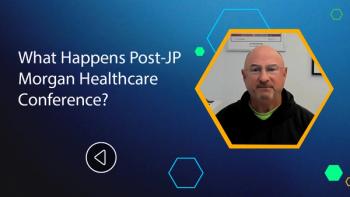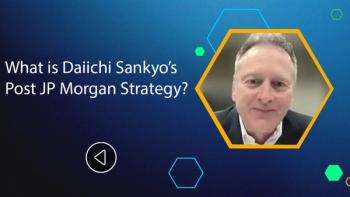
Financial Times Global Pharma and Biotech Summit: Global Health
David Reddy discusses negotiations on the global pandemic accord.
David Reddy, director general of the International Federation of Pharmaceutical Manufacturers and Associations, spoke about advancing global health at the Financial Times’ 2024 Global Pharma and Biotech Summit, which occurred in London from November 5th to the 7th. During the 20-minute session, Reddy discussed the current work being done to negotiate a global pandemic accord with the World Health Organization (WHO).
“We're in negotiations right now, so it's being carried out in Geneva as we speak,” he said. “This is really tough stuff in terms of negotiating this because what we're trying to do within the pandemic treaty is to clarify what the various roles will be in terms of the current agreement. A lot of it centers around two elements that are under discussion with great intensity. One is the role of particularly low- and middle-income countries in prevention one health, particularly around the management of livestock which is contagious. On the other, it's pathogen access and benefit sharing.”
He continued, “I think one of the challenges is any discussion around forced tech transfer. If you look at it, take a big step back, and determine what you are asking industry to do, you're asking them to engage in research in an area with all of the uncertainty of R&D, invest in that, and develop a product which may or may not actually reach commercialization.”
He went into detail about the issues surrounding forced technical transfers, explaining that they can actually disincentive companies from producing research or product.
“What we need to do is just think through that and make sure that we have a system that is workable for the maximum number of companies to engage in this,” he said. “I feel really passionate about this because what I want is more companies putting their shoulder to the wheel on this globally. We all want that and it’s what we need.”
Reddy continued, “Let's ensure that the barriers to entry are actually lowered. I don't think the industry is asking for incentives, but just to drop the disincentives. That's where the discussion is taking place. I'm optimistic that if we take a step back and look at the big picture, the roles that each of us can play, and have some trust in one another, I think we can get there.”
Not surprisingly, the recent election of Donal Trump as President of the United States came up, with presenter Ian Johnston asking if this will impact the negotiations.
“I don't think so,” Reddy answered. “Right now we're in negotiations and I think it is just a case of stepping back and looking at the big picture. I'll give you an example for why I'm why I'm optimistic. Last evening, I met with eight African ambassadors, and I introduced myself as being in this industry. Then we started talking about R&D and we were joined by somebody who works in an African country who has a fabulous drug discovery and early development unit there.”
He continued, “They were asking him how he had gotten to the stage of development, and that's where you actually saw the role of industry come to the forefront. He said that he had the Gates Foundation putting funding into it, along with GSK, Novartis, and Merck, but it goes over and above that. Our scientists are being taken into those companies and trained in drug discovery and then they're going back. They're sending their scientists and actually exposing the ambassadors to a different way of thinking. It's not just about a forced tech transfer. This is the stuff that's happening every day that you can build on.”
Newsletter
Lead with insight with the Pharmaceutical Executive newsletter, featuring strategic analysis, leadership trends, and market intelligence for biopharma decision-makers.




